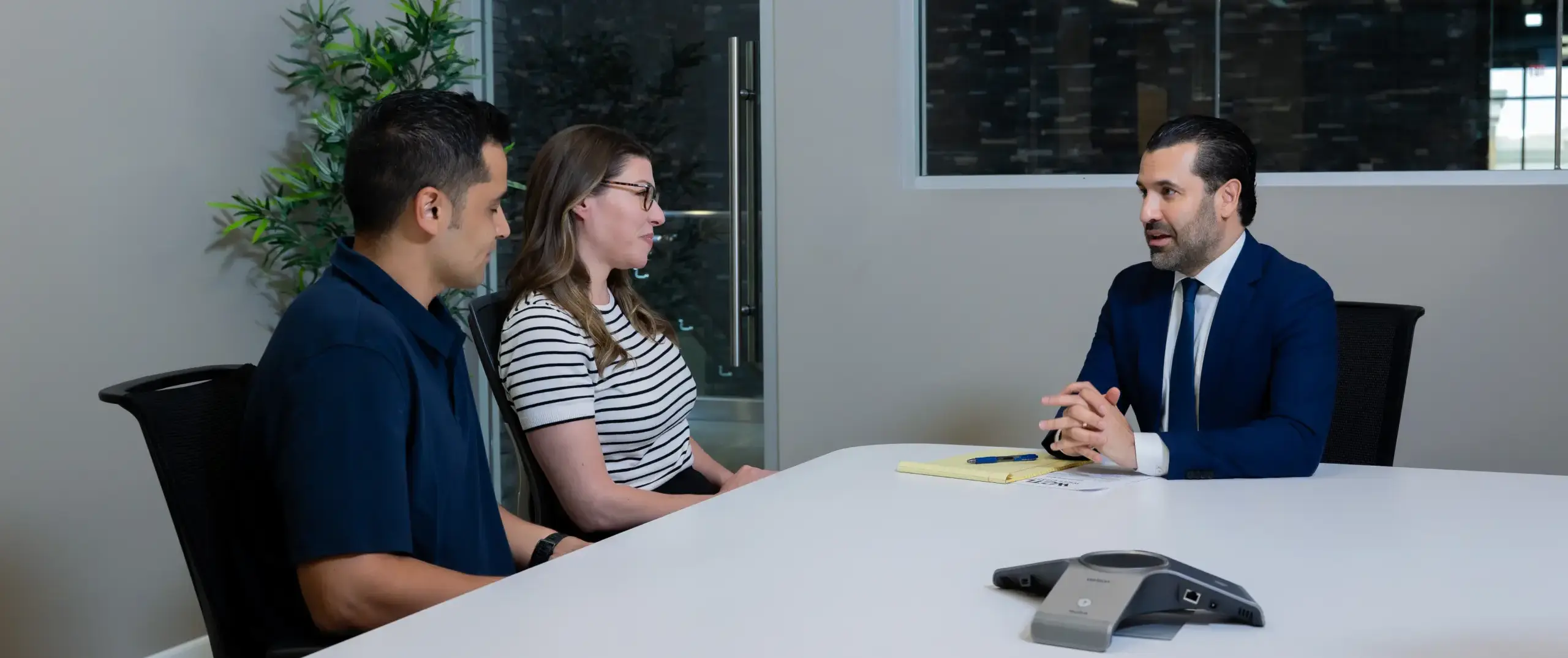When someone has been sexually assaulted, the healing process can take years and the decision to come forward is delayed by trauma, fear, or shame. Unfortunately for survivors of sexual assault, the statute of limitations (SOL) sets a legal time limit on how long a survivor has to file a lawsuit or for prosecutors to bring criminal charges.
In California, legislators have taken significant steps in recent years to extend or eliminate many time limits, giving survivors more opportunities to seek justice. However, deadlines still apply depending on the survivor’s age, the date of the assault, and the type of case (civil vs. criminal).
What is the Statute of Limitations
The statute of limitations is the legal deadline to file a lawsuit or for prosecutors to file criminal charges to a negligent or responsible party. Once that deadline passes, the case can no longer be filed in court and any attempt to do so will result in the case being thrown out. The purpose of these laws is to ensure fairness because evidence fades, memories weaken, and witnesses disappear over time. However, in cases of sexual assault, this rule can be deeply unfair, as survivors often delay reporting due to fear, shame, or trauma.
Civil vs. Criminal Statutes of Limitations
California distinguishes between criminal statutes of limitations (the time prosecutors have to file charges) and civil statutes of limitations (the time survivors have to sue the perpetrator or responsible institution for monetary damages). Both types of cases can arise from the same incident, but they follow entirely different timelines, procedures, and standards of proof.
What is California’s Statute of Limitations for Sexual Assault
Under California Code of Civil Procedure (CCP) § 340.16, adult survivors of sexual assault are generally allowed to file a civil lawsuit within 10 years of the last act of assault, or within 3 years of the date they discovered, or reasonably should have discovered that the assault caused a psychological or physical injury, whichever period expires later.
This discovery rule acknowledges that survivors may not immediately understand the full extent of their harm. For example, someone may not connect chronic anxiety, PTSD, or depression to their assault until years later after seeking therapy or counseling. Under § 340.16(b)(2), that moment of realization triggers a new three-year filing window.
This same section explicitly defines “sexual assault” as conduct described under California Penal Code § 243.4, 261, 264.1, 285, 286, or 288, which include acts such as rape, sexual battery, sodomy, and sexual penetration by force or coercion. Survivors may file civil claims not only against the perpetrator but also against institutions such as employers, schools, or organizations that negligently hired, retained, or supervised the offender.
Civil Claims for Childhood Sexual Assault Survivors
For survivors who were under 18 when the abuse occurred, California provides comprehensive protections under CCP § 340.1. As amended by Assembly Bill 452 , which took effect on January 1, 2024, the statute of limitations for childhood sexual assault has been eliminated and victims are able to file a claim for abuse occurring on or after Jan 1st, 2024, and removed restrictions for plaintiffs over 40, allowing them to sue entities that knew or should have known about abuse by employees/agents. These changes removed the previous knowledge requirement, expanding survivors’ ability to seek justice for CSA, with separate revival windows existing for older cases.
Importantly, the definition of “childhood sexual assault” under § 340.1 encompasses any act of sexual abuse as described in the previously mentioned California Penal Codes, including instances of molestation, forced sexual contact, or lewd acts upon a minor. The law also permits claims against third parties such as churches, schools, or youth organizations if they failed to take reasonable steps to prevent or report the abuse.
California’s Adult Survivors Act (AB 2777)
Recognizing that adult survivors often face similar barriers to reporting, the California Legislature passed Assembly Bill 2777 (the “Adult Survivors Act”), which added subsection (c) to CCP § 340.16. This law created a revival window allowing survivors of sexual assault who were adults at the time to file civil claims that had already expired under prior statutes.
This revival period began on January 1, 2023, and remains open until December 31, 2026. It applies to claims involving sexual assault occurring on or after January 1, 2009, where the survivor did not previously obtain a final judgment. For many Californians, this law represents a historic opportunity to seek accountability for long-buried trauma.
Criminal Statute of Limitations for Sexual Assault in California
Criminal statutes of limitations are governed by the California Penal Code, and these have also undergone major reform. Under Penal Code § 801.1(a), prosecutors may file felony charges for rape or sexual assault within 10 years of the offense. However, under Penal Code § 799, there is no time limit for filing charges in cases involving:
-
Rape or forcible sexual assault when DNA evidence identifies the perpetrator,
-
Sexual assault of a minor under specific aggravated circumstances, or
-
Offenses punishable by life imprisonment.
These legislative changes recognize that scientific advances, such as DNA testing, can identify offenders many years after the assault, and that justice should not depend solely on the passage of time.
How Other States Handle the Statute of Limitations for Sexual Assault
While California has taken progressive steps to extend survivors’ rights, neighboring states vary in their approach:
-
Nevada allows survivors to file civil claims within 10 years of the assault or discovery of injury under Nevada Revised Statutes (NRS) § 11.190. For criminal prosecution, most sexual assault offenses can be charged within 20 years under NRS § 171.083, though there is no limit for cases involving DNA evidence or child victims.
-
Arizona historically imposed a restrictive 2-year limit for civil sexual assault claims under Arizona Revised Statutes (A.R.S.) § 12-542, but recent reforms under SB 1260 opened a temporary revival window in 2019 for survivors of childhood sexual abuse. For criminal cases, A.R.S. § 13-107 removes the limitation entirely for certain felony sex crimes.
-
Washington provides some of the most survivor-friendly timelines in the region. Under Revised Code of Washington (RCW) § 4.16.340, survivors of childhood sexual abuse can file until age 38 or 3 years after discovery of the injury, whichever is later. For criminal cases, RCW § 9A.04.080 eliminates the limitation for first-degree rape and certain child sex offenses.
These regional comparisons highlight how California’s legal framework particularly through CCP §§ 340.1 and 340.16, places the state among the most forward-thinking states when it comes to expanding survivors’ access to justice.
What If the Statute of Limitations Has Passed?
Even if the statute of limitations has technically expired, survivors may still have legal options. Courts may apply doctrines such as “equitable tolling” or the “delayed discovery rule” in cases where trauma, coercion, threats, or concealment prevented timely action.
In some cases, if the survivor only recently uncovered institutional negligence such as a school covering up prior misconduct, the claim period may be restarted under CCP § 340.16. An experienced California sexual assault attorney can evaluate whether your circumstances fall under one of these exceptions or qualify for a revival under AB 2777.
If You’re Worried It Might Be “Too Late,” Here’s What to Do Next
- Act now to preserve timing– Even when a statute seems expired, AB 2777 or other exceptions may help, but deadlines are strict. A skilled attorney calculate the exact date that applies to you.
- Preserve evidence discreetly– Save messages, emails, photos, badge logs, travel records, and names of witnesses or security staff. Expert support like medical expert testimony can really help.
- Consider confidentiality options– California courts routinely allow “Jane/John Doe” filings to protect identities in sensitive cases.
- Public-entity cases– If a city, county, school, or transit agency is involved, claim-presentation rules may apply within 6 months.
In addition to these steps, you can contact non profits and organizations that specializes in giving support and resources to survivors. For instance, RAINN is one of the largest organizations that handles sexual assault cases and survivors can call 800-656-HOPE (4673) or chat online for confidential support and local referrals. In addition, the California Victim Compensation Board (CalVCB) gives valuable information on compensation for counseling, medical bills, and more.
Talk to a California Attorney Who Understands the Timelines and the Stakes
At West Coast Trial Lawyers, our team of sexual assault lawyers handle difficult cases with the discretion they deserve. Whether your case involves a powerful employer or public figure, entertainment venue, or hospitality brand, our team can handle your case, secure evidence quickly, and move to file within the correct window. Consultations are free and confidential and if we represent you, we do so on a contingency fee (you pay nothing unless we win).
Ready to explore your options? Contact our survivor-focused team through our secure form or give us a call (213) 927-3700.


















































































